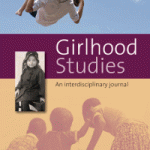Third ISA Forum of Sociology (Web), Session organizers: Anna Schober, Justus Liebig University Giessen and Regev Nathansohn, University of Michigan, Ann Arbor
Time: July 10-14, 2016
Venue: Vienna
Abstract until 30 September 2015; Read the full CfP as PDF
Everyday life usually goes unnoticed. It has to do with repetition, with the usual and the regular, but also with consummation and continuance. Visual culture is involved in the constitution and maintenance of everyday life as well as in creating meaning in respect to it. As such it testifies to everyday and to ordinary processes which often escape our attention. This ordinary, everyday life, however, is also a site from which rupture, change and even upheaval or revolution might arise. And since the ordinary and the everyday are also linked to commonality, i.e. to a notion of society rather than to the monadic individual, visual culture also testifies to transformations of our ways of being in common.
At the same time, however, visual culture can trigger identification and adoption processes as well as conflict, and in this way itself becomes an agent transforming everyday life. Continue reading



